OUR PARTNERS
The Victorian Government Department of Energy, Environment and Climate Action (DEECA) provides support to Landcare Australia’s Victorian operations to assist Landcare Australia in developing partnerships with non-government funding providers and building capacity for the Victorian Landcare community.
This support contributes to Landcare Australia’s success in providing funding to a diverse range of Landcare projects across the state as well as showcasing inspirational Victorian Landcare stories to a wide audience through various media and communications activities.
In 2022, for the fifth year, DEECA funded the Victorian Junior Landcare and Biodiversity Grants Program in partnership with Landcare Australia’s Junior Landcare program. A total of $381,288 in funding was awarded to 110 projects.
The grants provide funding to Victorian primary and secondary schools, kindergartens, preschools, childcare centres, Scouts, Girl Guides and Junior Landcare groups for projects that involve and educate young people in valuing and actively caring for Victoria’s biodiversity and natural environment. Specialist schools and youth groups working with culturally and linguistically diverse communities are also encouraged to apply.
Since the Victoria Junior Landcare and Biodiversity Grants program commenced, 571 projects have received over $2million in funding from DEECA.
Read case studies for some of these completed projects.
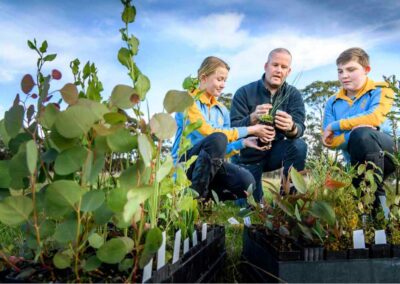
Young People Restoring Threatened Ecosystems
Case study
Bacchus Marsh Grammar revegetating farmland to learn more about biodiversity, habitat restoration and climate benefits.
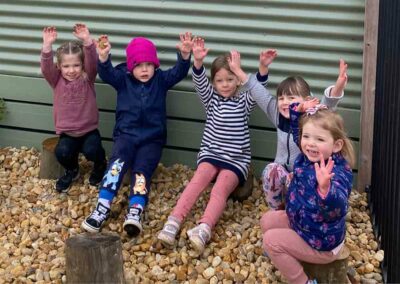
Outdoor Learning Space
Case study
Children at the Gippsland Lakes Complete Health Children’s Centre enjoying their new biodiversity focused outdoor education space.
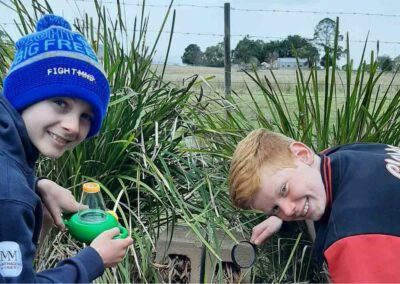
Learning about biodiversity by setting up an outdoor learning hub
Case study
Newham Primary School students learn about fauna and flora biodiversity by creating their own learning hub in consultation with the wider community and Traditional Owners.
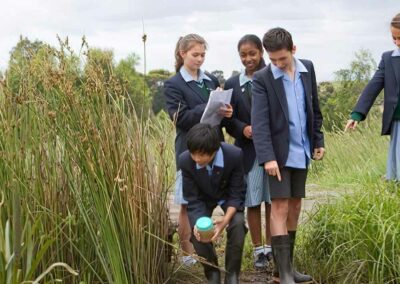
Creek restoration and wildlife corridor project improves biodiversity
Case study
Aitken College students were able to improve the biodiversity of Brodies Creek by constructing an aquatic pond and propagating and planting 250 indigenous plants
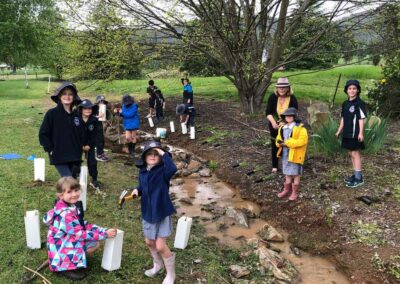
Indigenous planting improves biodiversity and habitat for local fauna
Case study
Students were able to plant 300 indigenous plants along the bank of a waterway running through the school, in a project bestowing the responsibility of …
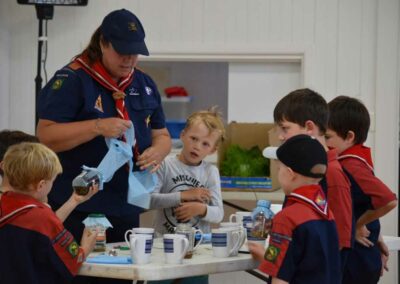
Bringing community together at Frankston Scouts
Case study
With its grant, the scout group constructed an edible indigenous plant garden and restored habitat for native animals around their Scout hall, in a biodiversity …
